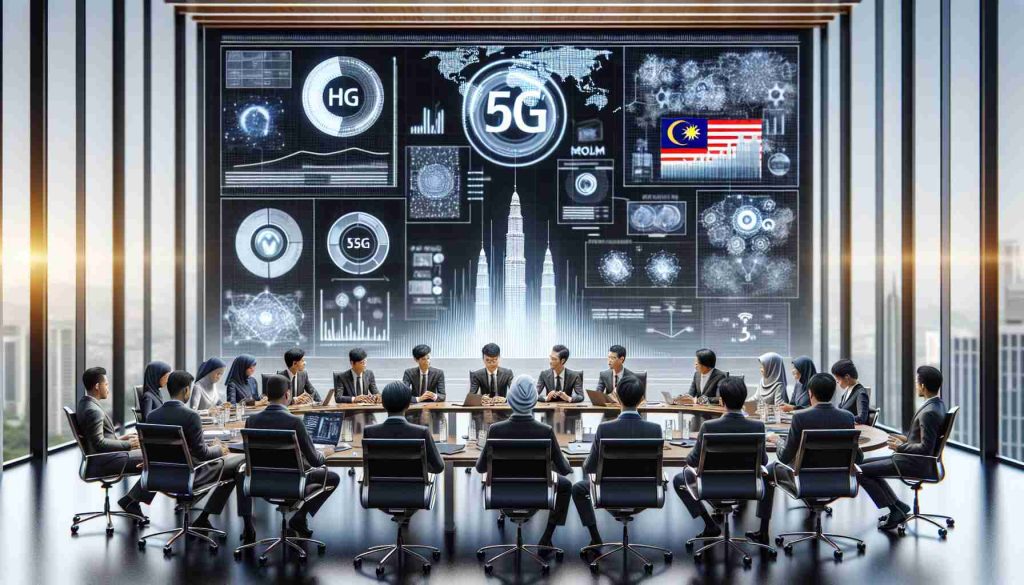As discussions around 6G technology heat up, some industry veterans express concern that the excitement might be waning. While the concept of 6G promises to bring enhanced speed and connectivity, similar to the breakthroughs seen with its predecessor 5G, critics argue that the conversation may need a fresh perspective.
The International Telecommunication Union has projected that 6G could usher in unprecedented advancements by the year 2030. However, numerous stakeholders are beginning to voice skepticism regarding the practicality of these aspirations. Many experts believe that the focus should shift toward optimizing existing networks, rather than solely concentrating on the futuristic allure of 6G.
Others in the field emphasize the importance of integrating current technological capabilities with new innovations. This approach could potentially lead to significant improvements in user experience and network efficiency without getting lost in the 6G hype. Advocates for practical development argue that businesses should capitalize on the enhancements offered by 5G, which are still unfolding.
Simultaneously, some researchers are already exploring what post-6G technology might look like. This proactive mindset is essential, but it raises questions about whether the industry is ready to handle the impending advancements or if it should stabilize current foundations first.
As the technological landscape evolves, the debate continues about moving forward with 6G while ensuring that the advantages of existing frameworks are fully realized. The path ahead remains uncertain, but the ongoing discourse is crucial for the future of global connectivity.
Is 6G the Future or Just a Fading Dream? Exploring the Potential and Perils
The rapid development of communication technologies has generated a lot of buzz around 6G, but many questions linger about what this next generation of network technology will truly mean for people and societies worldwide. As businesses and governments invest time and resources into this new paradigm, it’s crucial to analyze both the potential impacts and the controversies that accompany the 6G hype.
Interesting Facts and Controversies
One intriguing aspect of 6G is its promise to harness terahertz frequencies, which are currently untapped in conventional wireless communication. This could theoretically allow for hyper-fast data transmission rates—potentially up to 100 times faster than 5G. However, the technology required to achieve this still presents significant engineering challenges, leading some to argue that we may be prematurely celebrating its arrival.
Moreover, with 6G poised to integrate artificial intelligence (AI) more deeply into networks, ethical questions arise regarding data privacy and surveillance. Critics assert that the extensive data required for AI functionality could lead to increased vulnerability for users, sparking debates about consent and control over personal information in a digital age.
Advantages and Disadvantages
The advantages of 6G technology could be transformative. Greater connectivity could benefit education, healthcare, and transportation systems, enabling remote surgery, smart cities, and augmented reality experiences that vastly improve quality of life. Additionally, enhanced communication networks could empower small businesses in rural areas, allowing equal access to global markets.
On the flip side, the immense investments required for 6G infrastructure could widen the digital divide. Countries with limited resources may struggle to implement these advanced technologies, causing a disparity in access to the benefits of connectivity. There is also the risk that industries might become too reliant on technology that might still be nascent, leading to issues if 6G doesn’t deliver on its promises.
Questions and Answers
What are the main obstacles preventing the swift development of 6G?
While the theoretical framework for 6G is being laid out, several technical challenges must be addressed, including the development of new materials and devices that can operate effectively at terahertz frequencies. Additionally, regulatory frameworks and international collaboration will be essential to harmonize standards.
How does 6G relate to current global issues like climate change?
The development and deployment of 6G can contribute significantly to climate action initiatives by enabling smarter energy management and resource optimization in industries. However, the environmental impact of producing new technology must also be considered; the lifecycle of devices and infrastructure may add to carbon footprints.
Will 6G lead to job losses or job creation?
While fear of job displacement due to automation is prevalent, 6G could also generate employment in tech development, network management, and cybersecurity sectors. Reskilling and upskilling will be vital to enable workers to transition into new roles created by this technology.
In conclusion, the journey toward 6G is fraught with both potential and peril. As the discourse continues, it is essential for stakeholders, including governments, businesses, and civil society, to engage actively in shaping a future that prioritizes not just faster technology but equitable access and ethical considerations.
For more on telecommunications, visit ITU.























